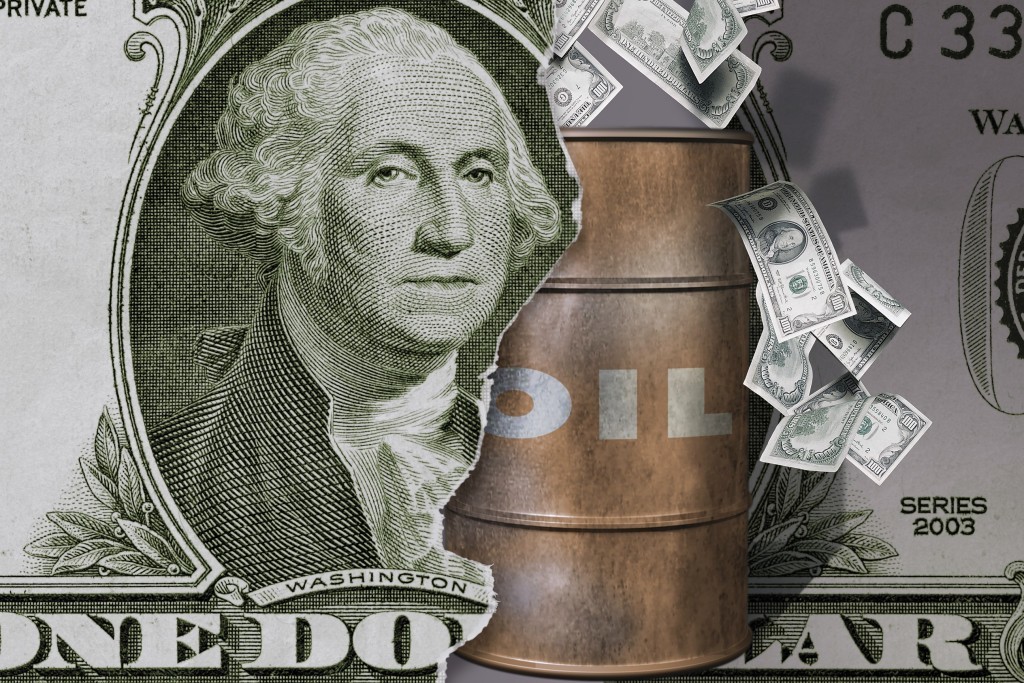
Oil in New York headed for its third weekly decline as Brent crude’s discount to U.S. prices increased on signs Iran is moving closer to boosting exports.
West Texas Intermediate futures dropped as much as 3.3 percent in New York and are down 8.4 percent for the week after slipping below $30 a barrel on Tuesday. International sanctions on Iran may be lifted Monday, allowing for a boost in oil shipments from the fifth-biggest member of the Organization of Petroleum Exporting Countries. The European benchmark’s discount to WTI widened to the biggest intraday gap since July 2010.
“Lower oil prices have been a sentiment leader for the recent market selloff and will again be in focus with Iranian sanctions expected to be lifted next week,” Ric Spooner, a chief analyst at CMC Markets in Sydney, said in a note Friday. “How fast Iran can put oil back on the market will now be a key issue for oil markets, with many skeptical that it will be able to do this nearly as fast as it has forecast.”
Crude capped a second annual loss in 2015 as OPEC effectively abandoned output limits amid a global surplus. The price decline is affecting producers with BHP Billiton Ltd. expecting to book a $4.9 billion writedown on its U.S. shale assets, BP Plc planning to cut 4,000 jobs and Petroleo Brasileiro SA slashing its spending plan.
WTI for February delivery fell as much as $1.03 to $30.17 a barrel on the New York Mercantile Exchange and was at $30.36 at 7:55 a.m. London time. The contract rose 72 cents to $31.20 on Thursday. Prices slid below $30 Tuesday for the first time in 12 years. Total volume traded was more than double the 100-day average. Prices have lost 18 percent this year.
Brent for March settlement was 43 cents lower, or 1.4 percent, at $30.45 a barrel on the London-based ICE Futures Europe exchange. The February contract expired Thursday after gaining 72 cents to $31.03. Prices dropped below $30 Wednesday for the first time since April 2004. The European benchmark discount widened to as much as $1.07 to WTI for March, the biggest intraday gap since July 2010.
Iran is trying to regain lost market share and doesn’t intend to pressure prices with an export increase once sanctions are removed, officials from its petroleum ministry and national oil company said this month. The nation’s output will increase by 100,000 barrels a day, or 3.7 percent, a month after sanctions are lifted and by 400,000 in six months, according to the median estimate of 12 analysts and economists surveyed by Bloomberg.